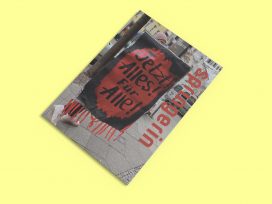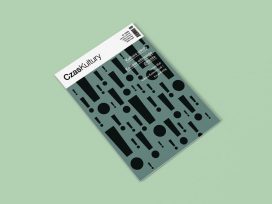Why, in times of crisis, we need to recognize the qualities of failing; on emancipation through creative cooperation and how to activate the commons; and a parallel history of Arab-Israeli politics.
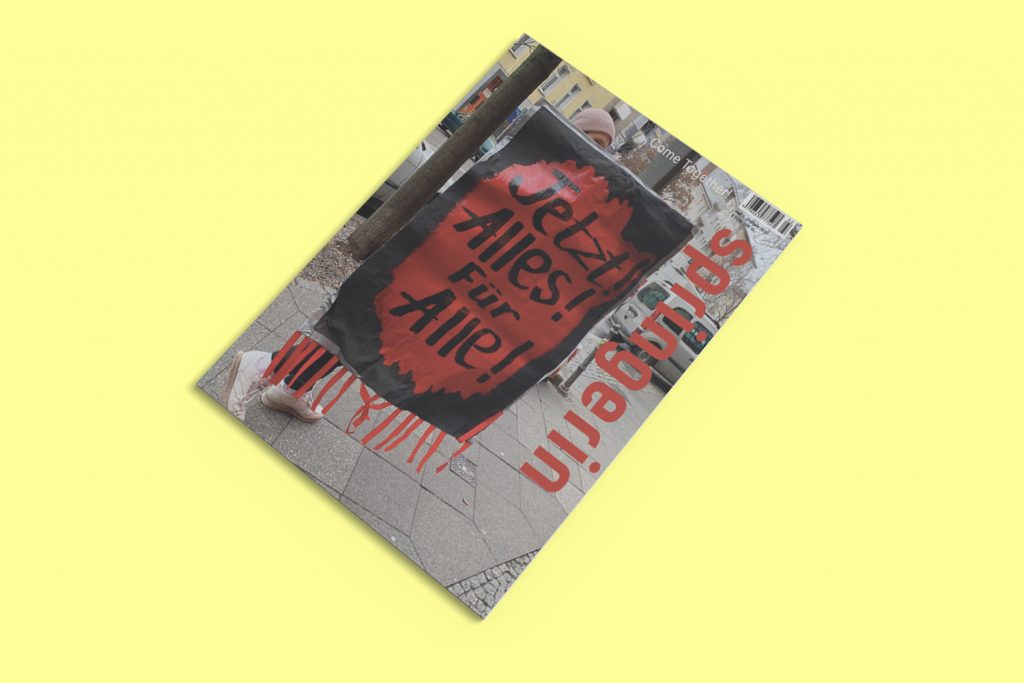
How we ‘come together’ will assume new significance after the pandemic, proposes Springerin: social, cultural and ethnic integration will need to be championed anew and cognitive capitalism’s tight hold on social isolation counteracted. The issue considers whether common space or radical trial and error might be more effective for future inclusion.
Failing better
Ewa Majewska calls for ‘weak resistance’ to empower the powerless. Appropriating sustainable development’s slogan ‘The future is now’, she argues that in times of crisis, we need to recognize the qualities of failing rather than veering between heroic action and melancholic despair.
Historical examples include Rosa Luxemburg, who observed lessons in ‘learning from failures, and failing better’, and Martin Luther King, whose dream of equality was all about the ‘need to practice, to fail, and to be equal better’. Weakness, writes Majewska ‘can be seen as a beginning of transformative action, as a shifting point, a moment of mobilization. Perhaps we don’t need another hero. We can act together instead.’
Commoning
Stavros Stavrides proposes commoning as a means to empower the marginalized. He takes the established notion of commons as resources for all and incorporates an active element: ‘Contemporary endeavours to re-appropriate the city are not only a product shared by everyone, but also a process developed by everyone through sharing.’ Quoting Lefebvre’s ‘right to the city’, Stavrides proposes emancipation through creative cooperation.
Leading the way are the refugees and local activists in Athens who commandeered the disused City Plaza Hotel for a self-managed accommodation and support centre; La Toma, the movement of unpaid supermarket workers in Rosario, Argentina, who ‘take’ the store and turn it into a shared socio-cultural space; and the institute for indigenous people in San Cristobal de las Casa, Mexico, which incorporates traditional wisdom to empower minoritized citizens. Shared action can fill a humanitarian gap and tackle social issues in supportive environments: ‘commoning avoids uniformity and homogeneity by offering … an inclusive, common life open to differences’.
Parallel history
Joshua Simon’s research of the MAKI Israeli Communist party’s archive reveals photographs of Arab and Jewish Palestinians demonstrating together for a two-state solution on a 1947 trip to Yugoslavia and Czechoslovakia. ‘Through the archive, we … have access to that parallel history that never happened and is still waiting to be forged.’
More articles from Springerin in Eurozine; Springerin’s website
This article is part of the 9/2020 Eurozine review. Click here to subscribe to our weekly newsletter, to get updates on reviews and our latest publishing
Published 22 May 2020
Original in English
© Eurozine
PDF/PRINTNewsletter
Subscribe to know what’s worth thinking about.
Related Articles
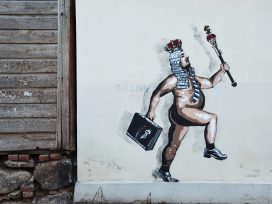
Unmasking naked delusion
Tangent
Ever been had? Led to believe a lie, an untruth? Realized the con too late? It can happen to anyone. Deception is rife. But so too is delusion. ‘Tangents’, a new Eurozine editorial feature, takes a critical look at the duplicitous pair.
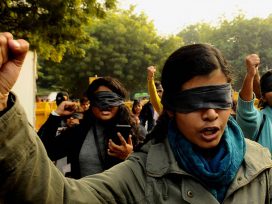
Pandemic rape in India
The corona crisis, informal gendered support and vulnerable migrant women
Staying home may reduce COVID-19 infection but is not the safest place for all – women with violent partners are more at risk of abuse during lockdown. And solidarity is crucial. Atreyee Sen addresses the critical situation in India, where women are also being attacked in institutions and when forced to migrate.

